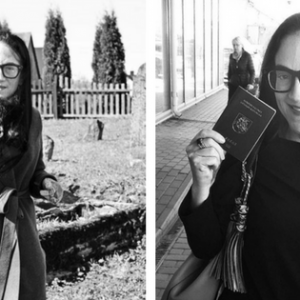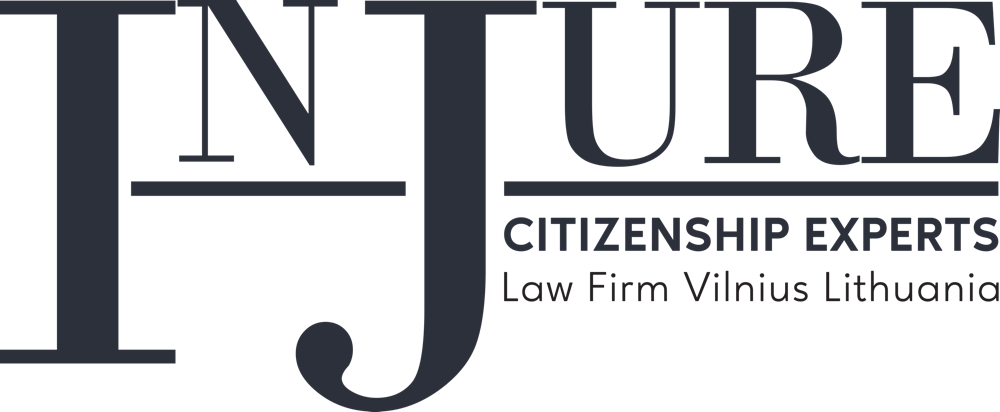-
 by Sigitas Kanišauskas
by Sigitas Kanišauskas
on 22 April 2017Many traces of Jewish life survive
Not only the cemeteries and graves of the Holocaust victims, but also the surviving buildings – synagogues, schools, baths and dwelling houses – speak of the large Jewish community that once lived in our country before the war. By far the largest number of traces of Jewish life can be found in Pušalotas. The town has a synagogue, a brick building that was a Jewish primary school, several former dwelling houses and a large cemetery. Several years ago, the Šiaurietiški atsivėrimai, a regional history and culture magazine, published a detailed article titled “From the lives of Pušalotas Jews” written by Viktorija Čirvinskaitė. The author claimed that Pušalotas had had around 200 Jewish residents in June 1941. She also reminded us that Rabbi Reuven Brog, the grandfather of the former leader of the Israeli government and the Minister of Defence Ehud Barak, had been buried in the town’s Jewish cemetery. Along with his pregnant wife Frieda, he was killed by robbers who had broken into their home back in 1912. More recently, the deceased President of the International Jewish Genealogical Society, Howard Margol, also had his ancestral roots in Pušalotas. His parents and grandparents lived in the town while Feiga Margol, Mr Margol’s grandmother, was buried in Pušalotas cemetery. The President of the International Jewish Genealogical Society was one of the enthusiasts who commissioned a commemorative plaque to appear on the wall of the Pušalotas synagogue, and its unveiling ceremony took place in the summer of 2005.
In quest of the traces of their parents, grandparents and other ancestors, Jews from a variety of countries worldwide travel, whether in organised groups or alone, to visit Pušalotas every year. The parents and grandparents of many of these visitors were citizens of the Republic of Lithuania prior to 15 June 1940. Hence, their children and grandchildren can exercise the right granted by the Law on Citizenship to become citizens of our state. One such visitor, who obtained her Lithuanian passport in Vilnius at the beginning of April, is Janine Stein, a journalist from Singapore. She welcomed the invitation to come to Pušalotas town, which was once home to her grandparents and great-grandparents. This was not the first visit paid by Ms J. Stein to her ancestral land; she first came to Pušalotas a couple of decades ago.
Viewing the Pušalotas synagogue, the guest reminded us that a two-storey brick building, erected in 1913, was previously the centre of not only the religious, but also the cultural and social lives of the town’s Jews. A former wooden synagogue was previously located on the site, but burned down in 1911. The journalist is proud of her great-grandparent Mendel Margol, who was one of the leaders of the Jewish community in Pušalotas Town. He contributed to the efforts to have a new brick synagogue built in lieu of the wooden one that had burned down. Also, the aforementioned President of the International Jewish Genealogical Society, Howard Margol, was a cousin to Max Harry Stein, Janine’s father.
Visiting the Pušalotas Jewish cemetery, the journalist expressed her regrets that many inscriptions on the tombstones therein have become illegible. Yet, she succeeded in finding the grave where one of her ancestors, Leib Margol, was buried in 1865.
Strolling down Pušalotas town centre, the guest also showed an interest in the brick building of the Jewish primary school built in 1909 and the surviving dwelling houses of her fellow nationals.
Grandparents departed to South Africa
Ms Stein’s grandparents, Bassa Stein and Hessel Stein, lived in Pušalotas for a long time. The journalist mentioned that her grandfather had been a merchant, and her grandmother, a housewife. Before World War II, South Africa was one of the most popular destinations for Jewish expats. Janine’s grandfather moved there in 1928, and he was joined by her grandmother and their three children three years later in 1931. One of them – Max Harry Stein – later fathered Janine. Ms Stein recalled from stories told by her parents that before the war the Jews had their freedom of movement restricted in South Africa. She was born in Johannesburg, a city in the Republic of South Africa, in 1962, and her mother still lives in that city. Ms Stein graduated from Rhodes University in the Republic of South Africa with a degree in Journalism and English Language in 1982. Seven years later, in 1989, she left for Hong Kong. In the former colony of the United Kingdom, which became part of the People’s Republic of China with a special status in 1997, Janine worked as a journalist. Since September 2000, she has continued her beloved career in Singapore, and Ms Stein is now the Editorial Director of the TV company ContentAsia. The guest noted that Singapore was famous for being not just the cleanest, but also one of the safest countries in the world. She said that she endeavoured to spend her free time, of which she had little, travelling. At the end of her stay at Pušalotas, Janine Stein assured us that she would certainly return again to her ancestral home country, but this time with both of her sisters. They live in the Republic of South Africa; whereas her brother lives in California (in the United States of America).
This guest from a distant land was delighted to have become, just like her grandparents, a citizen of the Republic of Lithuania and to have been given the chance to come into contact with her ancestral roots by returning to Pušalotas once more. She also thoroughly enjoyed the informative brochure in Lithuanian and English “Jews in Pasvalys Region” that was presented to her as a gift. It was published by the Pasvalys Regional Museum six years ago.
